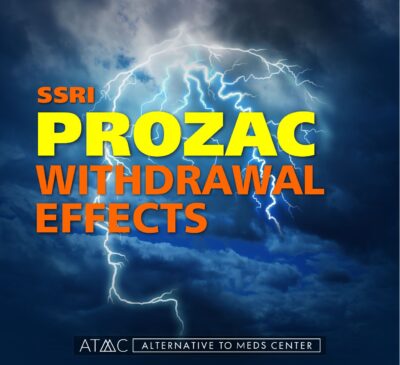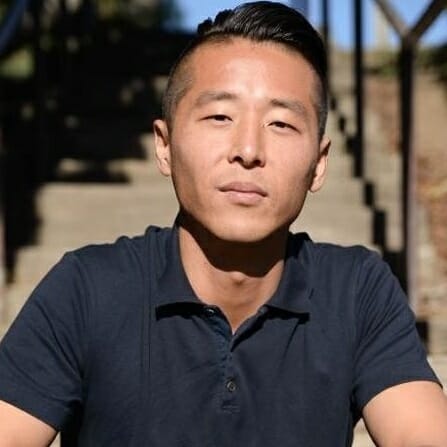What is Prozac?
Prozac is classed as an SSRI, meaning it is a substance that targets the distribution of serotonin. Serotonin is an inhibitory neurotransmitter that softens exterior stimulation, inhibits impulsive thinking, and buffers the type of fight-or-flight type of behaviors that lead to anxiety. The theory is that increasing the availability of serotonin will enhance this softening or buffering effect.
However, these effects are temporary. And results can be unpredictable. The molecules of serotonin that are blocked from re-uptake, will eventually become subject to the natural degradation effect of enzymes in the system. In other words, the serotonin that is available becomes spent, or becomes less potent. This is thought to inform how tolerance develops, where an SSRI drug stops working. Prozac has been around since the 1980s, primarily popularized under the umbrella of the “chemical imbalance” theory.
What is Prozac Prescribed For?
In 1987, the FDA approved Prozac to be prescribed to treat MDD (major depressive disorders) from age 8 and up, OCD (obsessive compulsive disorder) from age 7 and up, Bulimia Nervosa in adults, and Panic Disorders in adults.
Since its approval a black box warning has been mandated to caution against suicidality.4
What are the Off-label Uses of Prozac?
According to a 2022 study out of Denmark, SSRIs are the most frequent of all antidepressants prescribed off-label. Researchers found that between 10% and 40% of antidepressants were prescribed for something other than what the drug was approved to treat.5
Off-label uses included such things as hot flashes, quitting smoking, various anxiety disorders, insomnia, diabetic nerve pain, motion sickness, fibromyalgia, PTSD, chronic pain, migraines, and premature ejaculation. Many prescriptions were noted for “unspecified” conditions in addition to the above. It’s like the “wild west” as far as off-label uses for SSRIs and we would like to see a lot more caution and care regarding such prescribing practices.
What About the Side Effects of Prozac?
This section could fill a book, but below we have listed out the Prozac side effects that are most concerning, along with those that are less severe but commonly reported.4,6
Most severe Prozac side effects include:
- Suicidality
- Seizure
- Mania, hypomania (shorter duration)
- Cardiac issues
- Vision impairments
- Abnormal bleeding
- Tumors
- Serotonin syndrome, especially with co-occurring serotonergic substances
- Anorexia
- Loss of appetite, nausea, weight loss, growth impairments
Most commonly reported Prozac side effects include:
- Flu-like symptoms
- Physical weakness, lack of energy
- Insomnia, abnormal dreams
- Impotence, premature ejaculation
- Anxiety, nervousness
- Dry mouth
- Diarrhea
- Excessive sweating
- Rash
- Sinusitis
- Yawning
Are There Safer Alternatives to Prozac?
 The safest alternative before starting on a drug like Prozac is doing the investigative work, to find out the true causes of unwanted symptoms. Heavy metal and other toxicity, poor diet, an unsatisfying life circumstance, trauma, and many other things can precipitate the very symptoms that SSRIs are prescribed to “treat.” The very conjecture that “serotonin deficiency” is the cause of depression has now come under intense scrutiny, and proof is lacking that would support SSRI treatment as the only viable choice for treating depression. That was the drugmakers’ dream, but there are much better ways to address symptoms like depression.7
The safest alternative before starting on a drug like Prozac is doing the investigative work, to find out the true causes of unwanted symptoms. Heavy metal and other toxicity, poor diet, an unsatisfying life circumstance, trauma, and many other things can precipitate the very symptoms that SSRIs are prescribed to “treat.” The very conjecture that “serotonin deficiency” is the cause of depression has now come under intense scrutiny, and proof is lacking that would support SSRI treatment as the only viable choice for treating depression. That was the drugmakers’ dream, but there are much better ways to address symptoms like depression.7
In taking a drug like Prozac, one is more or less asking a drug to do what a drug cannot actually do. The hard work is looking at & reflecting on one’s life circumstances, utilize lab testing, correcting, and changing things that are actually causing one’s symptoms.
Prozac alternatives can assist at appropriate points during the withdrawal process, but are NOT a substitute for a measured, careful reduction in dosage. You can find out more about each of the items listed below on our services overview pages.
But if you have not yet begun a prescription, these strategies could very well help you avoid years of frustration and disappointment. Whether one is already taking an SSRI or is considering withdrawal, there are many alternative treatments and strategies to consider, which may be able to greatly assist your unique pathway forward.8-13
Safer Prozac Alternatives can include:
- Lab testing for food sensitivities, allergies, genetic markers, deficiencies, etc.
- A complete medical check, ensure medical conditions are recognized and treated
- Improve the diet, avoid sugars, refined carb intake, caffeine, chemically altered processed foods
- Support a healthy microbiome, the factory for natural neurochemicals
- Correct vitamin/mineral deficiencies, such as supplements or food-sourced tryptophan + niacin, 5HTP (precursors to serotonin)
- Psychological and lifestyle counseling, such as CBT
- Physical exercise, Qigong, Equine therapy
- Exposure to sunlight or use therapeutic light devices
- Meditation, practicing mindfulness, yoga
- Sound healing therapy
- Cold plunge therapy
- Neurotransmitter rehabilitation
- Neurotoxin removal
- Throw away toxic personal care items and clear your house or work area of toxic chemicals, off-gassing, mold, heavy metals including mercury, lead, etc.
Inpatient, Holistic Help for Prozac Withdrawal at ATMC
ATMC is an orthomolecular-based treatment center that has helped thousands of clients successfully withdraw from Prozac and other drugs in a safe and comfortable setting. Over 40 medical staff are on hand to assist each client with a tailored program that is unique to them. Medical oversight and gradual reduction is fundamental to success, supported by a wealth of blended holistic therapies to assist the process to comfortable completion.
If you or your loved one is suffering from, or wants to avoid difficult or protracted Prozac withdrawal, or misdiagnoses that can occur in SSRI withdrawal,14,15 we invite you to call and ask other questions you may have including insurance coverage, length of stay, and find out more. Prozac withdrawal should be a healing journey, and this is our aim for you at Alternative to Meds Center.

 Drug manufacturers don’t pay much attention to what happens to a person when they stop taking their product. It has taken decades to gather enough clinical evidence to help a person know what to expect during Prozac (fluoxetine) withdrawal. A massive review on the subject found that males were more severely affected in antidepressant withdrawal, as well as younger populations, those on multiple prescriptions, and especially in those using antidepressants over long periods of time.1
Drug manufacturers don’t pay much attention to what happens to a person when they stop taking their product. It has taken decades to gather enough clinical evidence to help a person know what to expect during Prozac (fluoxetine) withdrawal. A massive review on the subject found that males were more severely affected in antidepressant withdrawal, as well as younger populations, those on multiple prescriptions, and especially in those using antidepressants over long periods of time.1 The safest alternative before starting on a drug like Prozac is doing the investigative work, to find out the true causes of unwanted symptoms. Heavy metal and other toxicity, poor diet, an unsatisfying life circumstance, trauma, and many other things can precipitate the very symptoms that SSRIs are prescribed to “treat.” The very conjecture that “serotonin deficiency” is the cause of depression has now come under intense scrutiny, and proof is lacking that would support SSRI treatment as the only viable choice for treating depression. That was the drugmakers’ dream, but there are much better ways to address symptoms like depression.7
The safest alternative before starting on a drug like Prozac is doing the investigative work, to find out the true causes of unwanted symptoms. Heavy metal and other toxicity, poor diet, an unsatisfying life circumstance, trauma, and many other things can precipitate the very symptoms that SSRIs are prescribed to “treat.” The very conjecture that “serotonin deficiency” is the cause of depression has now come under intense scrutiny, and proof is lacking that would support SSRI treatment as the only viable choice for treating depression. That was the drugmakers’ dream, but there are much better ways to address symptoms like depression.7







